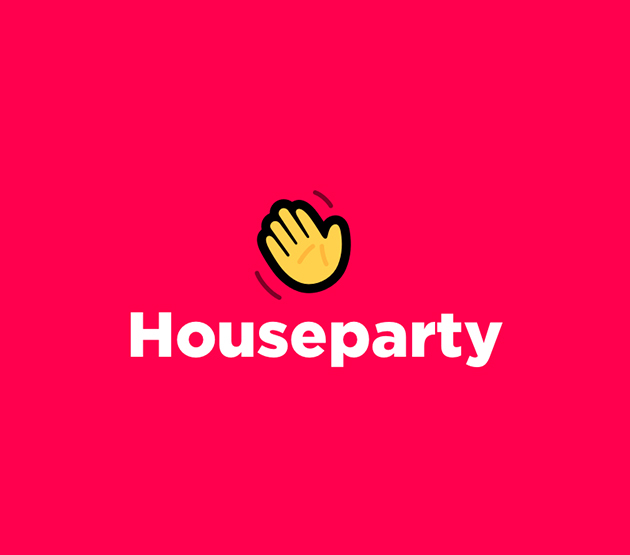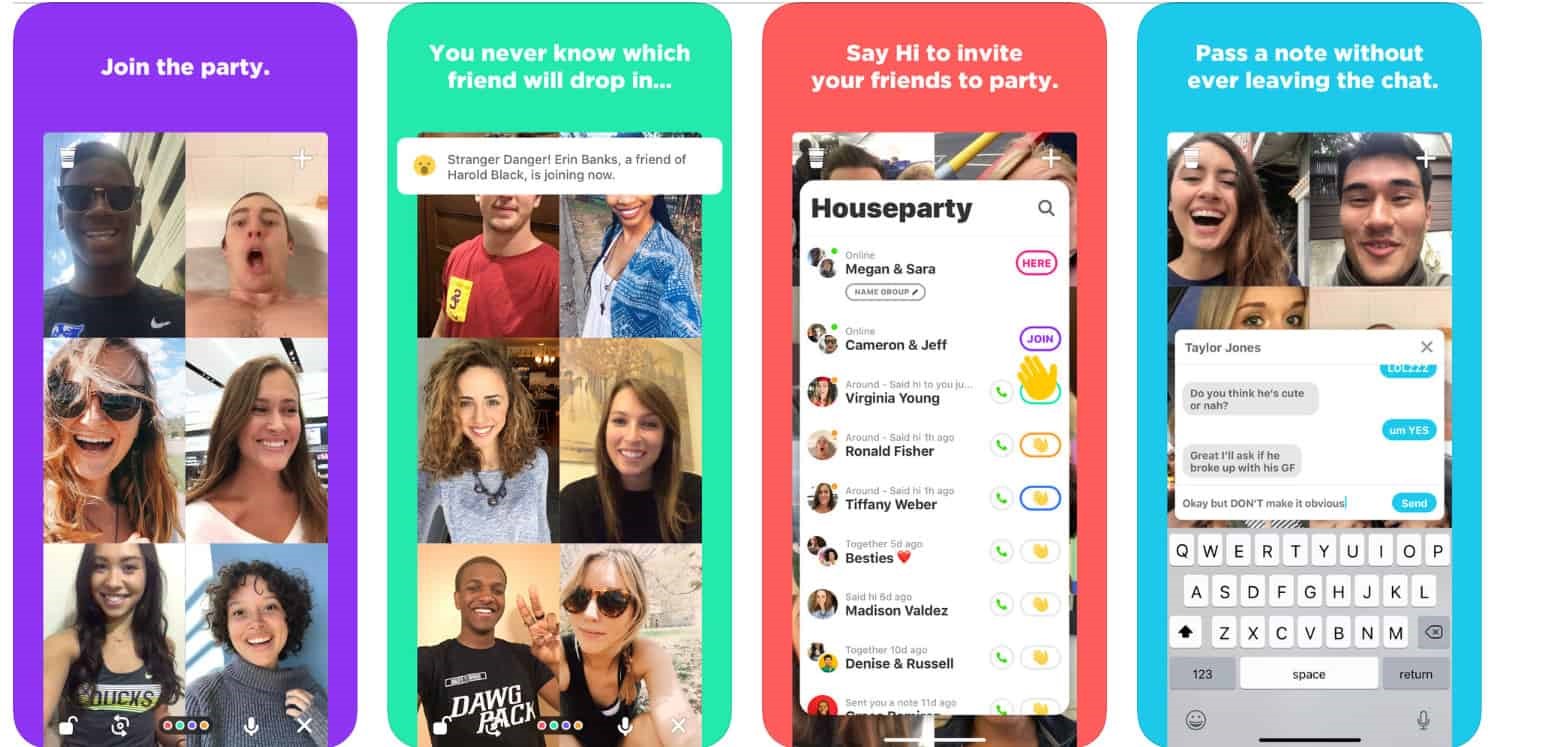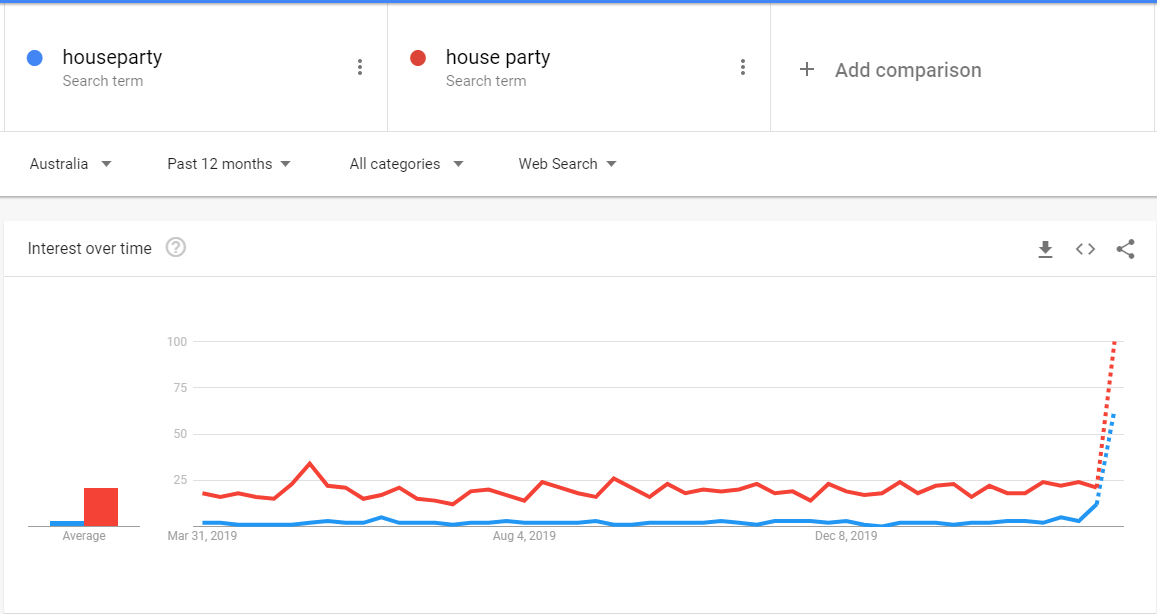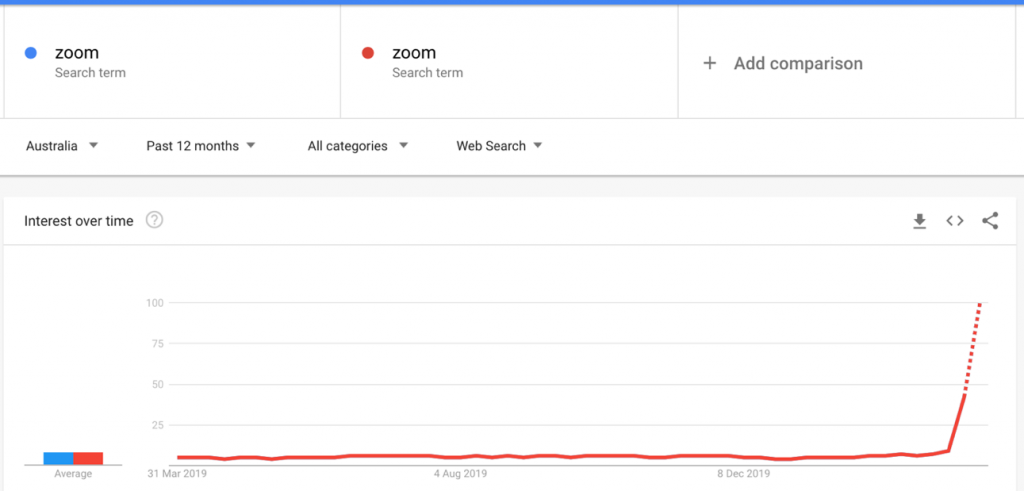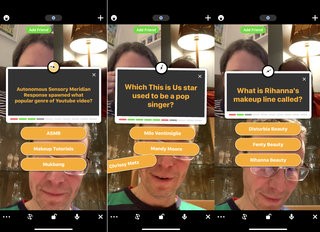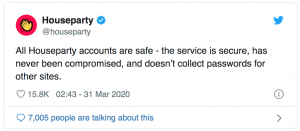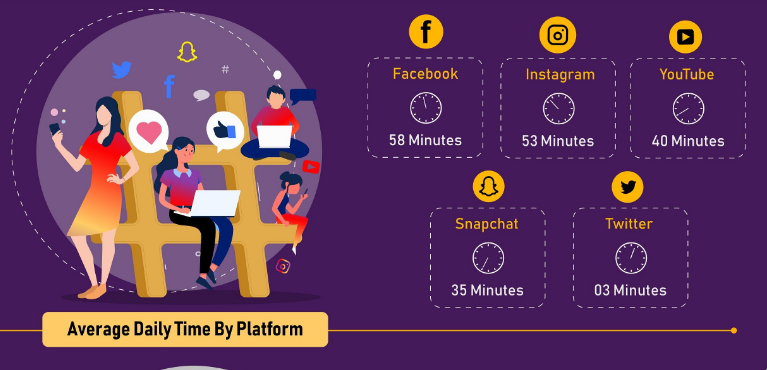Being social has certainly changed over the last few months with Covid19, and as a result the app that’s been the talk of the town has undoubtedly been Houseparty. Vogue even went as far as saying this “…is the quarantine app that you need to download immediately.” Now that pubs, restaurants, parks, movie theatres and other social gathering venues are closed, and much of the public are left with limited options to stay in touch with their friends and family, there’s been a huge uptake of this platform to keep connected.
But just how does it work and is it safe to use? We explain what you need to know:
What is Houseparty?
Houseparty is a free face-to-face video chat application for iOS, Android and computers, similar to Facetime or Skype. It connects with the user’s contact list and social media friends list and allows for an immediate connection to their friends online. Houseparty allows you to host a virtual party from the comfort of your couch. Up to eight people can enter a party (or video chat room) at one time and when the door to a party is left unlocked, friends of friends can ‘walk in’ to join the conversation.
You’d be forgiven if you were thinking Houseparty was a brand-new app on the market, but it’s actually not the case. It was acquired by Fortnite-maker Epic Games in the middle of 2019. The social app has been around since 2016, but it’s only been in the past month that it’s surged to the top of the Google Play Store charts and simultaneously Google search terms have skyrocketed. In early April 2020, the app generated two million downloads worldwide, compared to the 130,000 downloads it gained in February 2020.
Whilst Zoom has emerged as the go-to video conferencing platform for businesses, Houseparty has claimed the out of office hours space. The time when people are ready to relax after a hard day or week of work and get social with their friends whilst staying physically isolated throughout Covid19. It’s the casual Friday of video sharing platforms.
Similar to the days of MSN, the application notifies a user whenever their friends are online. Users can then join an existing video call without being invited by someone, or they can start up their own conversation with a person who isn’t currently talking to anyone else. At the same time, if some users need privacy and don’t want others to join their ongoing chat, they can simply lock the room.
Houseparty is not like any normal video calling app. The application also allows users to play a multitude of games together whilst at the party and continue to talk and catch up with one another. They’ve got the classic party game of charades, or the traditional pub quiz to a wordsmith’s dream of word association. Timeout New York gave some great tips on games that can be played if you’re looking for some fun with friends. You can also send people a ‘facemail’, which are video messages that appear as soon as the recipient opens up the Houseparty app.
Is Houseparty safe to use?
There has been lots of online discussion regarding the safety of the app. Reports have swirled around that Houseparty is unsafe to use with news that the app is related to personal information hacks including bank account details, Spotify and Netflix accounts and much more. There’s nothing to support this information at the moment and Houseparty have made it clear that no accounts have been compromised and that the data is safe:
We would urge that you exercise caution and if you do have younger children wanting to use the platform that you talk to them about cyber safety as you would any other platform. It is important to ensure that they do have an awareness of who they are talking to and to ‘lock the door’ to keep themselves safe. You can do this by hitting the padlock once the chat is going to ensure noone can drop in without permission. Some further tips for keeping your kids safe on the app can be found at Protect Young Eyes.
How can you use Houseparty in your marketing strategy?
In a social landscape dominated by the likes of Facebook, Instagram, Twitter, YouTube and TikTok, Houseparty is a small player. A typical Houseparty user has 23 friends on the app, however the average person also spends 60 minutes a day on the social media platform. Compare this to Instagram users who spend 53 minutes a day on the app and YouTube, where users spend 40 minutes. That’s a lot of time ‘hanging out’ that would allow marketers time to promote their goods and services.
Houseparty co-founder, Sima Sistani told The Verge, “We’re really starting to think about ways we can make money by bringing value to our users, not extracting value from them.” What this means is based on the current user experience on the app, there isn’t much room for traditional ad formats as they would detract from the user experience. Marketers and advertisers would need to consider how they would be able to market and advertise on the platform that would enhance the user experience.
For example, imagine if Spotify or another music streaming service were to integrate with Houseparty so that it would allow users to sync their music and act as a DJ for a virtual party, or if Netflix were to integrate so that users could watch their favourite TV shows and movies together from each of the user’s living rooms. Smaller brands could look at creating a branded game that users could play together whilst on the platform. However, without these options available at the moment, marketers will be looking at how they can use Houseparty organically.
There are a couple of barriers to consider when thinking of a marketing strategy on the platform. One of those being that Houseparty users join via their phone number not by creating a ‘profile’ like on Facebook and Instagram. This means that you cannot track their interests or life events, making targeting extremely difficult. Secondly each party or video chat can only host a maximum of eight people which would limit the effect of any organic marketing.
Perhaps the limit of the number of people you can have in a ‘room’ at one time can be taken advantage of. For example, if you’re a winery, perhaps you could engage with your highest-value customers with a one-on-one private tasting as a thank you for their constant support. Your customers could then invite a few of their friends and this will help build word of mouth for your cellar door. If you’re a fashion retailer or boutique owner you could offer customers a personal styling session or party, or a homewares/furniture shop owner could offer people an opportunity to style their living spaces to be more functional, especially now that they are spending more time at home.
Many gyms and yoga studios often offer a refer a friend service, you could offer your members a one-on-one personal training session where they can invite a few friends into the session to help build word of mouth about your brand. You could also use other social media platforms such as Facebook to run a competition to have the opportunity to win a cooking lesson with the head chef of your restaurant or a cocktail making party with your head bartender.
With the platform currently being free to use and the current climate of many people’s marketing budgets on hold, this is a great opportunity for marketers to experiment with the features. Don’t forget that you will need to be adding value to your brand and offer your customers and followers something new and exciting that will grab their attention. If you are currently closed, Houseparty would be a great opportunity to offer your services virtually.

